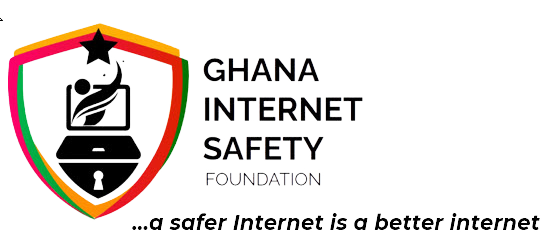
The KNUST recently hosted a pivotal discussion on digital well-being, spearheaded by the Ghana Internet Safety Foundation (GISF) and KNUST Peer Counsellors.
This landmark workshop delved into the intricacies of the cyber world, emphasizing resilience and mental health protection while promoting Online Protection and Safe Social Media Practices.
Distinguished speakers enriched the discourse with their expertise.
Dr. Tim McGuinness, a Board Director at SCARS, shed light on online threat dynamics, empowering counselors with insights into predatory behaviors and scam mechanisms.
Dr. Tim McGuiness further urged that while it’s important to investigate suspicious activity, netizens’ safety should always be the top priority.
He called for the leveraging of skills for the good of society rather than resorting to a life of cybercrime.
He emphasized that staying out of cybercrime remains critical and the best approach so far.
“Leveraging our skills for the betterment of society is not only morally upright but also incredibly rewarding. There are countless ways to contribute positively, whether through volunteering, working in ethical technology, advocating for social causes, or even mentoring others. Choosing a path that aligns with our values and benefits society can lead to a fulfilling and purposeful life,” he stated.
He shared some useful tips. “Tracing suspicious scams requires caution and expertise to avoid personal risk. It is important to document everything and Keep records of all communication, including emails, texts, and phone calls, as well as any relevant websites or social media profiles.Make efforts to verify sources and research the company or individual involved. Also look for reviews, complaints, and any history of scams associated with them.
“Look out for Official Websites. If the scam involves a government agency or organization, verify their contact information and reach out directly through official channels. Contact relevant authorities such as the Federal Trade Commission (FTC), Internet Crime Complaint Center (IC3), or your local law enforcement agency to report the scam. Trust your instincts and be wary of unsolicited offers, requests for personal information, and high-pressure tactics.”
On his part, Dr. Samuel Tinagyei, a cyber-trauma specialist from GISF, highlighted the psychological impacts of cyber threats and advocated for integrating mental health support into cyber safety protocols.
https://www.ghanaweb.com/GhanaHomePage/NewsArchive/GISF-holds-cyber-trauma-and-online-safety-training-for-KNUST-peer-counselors-1914544?fbclid=IwAR09qYMbUKecaN2HcmUOltba_NcVl293-coStF0D1Fhu-pevp2pRWR-LU7Y
